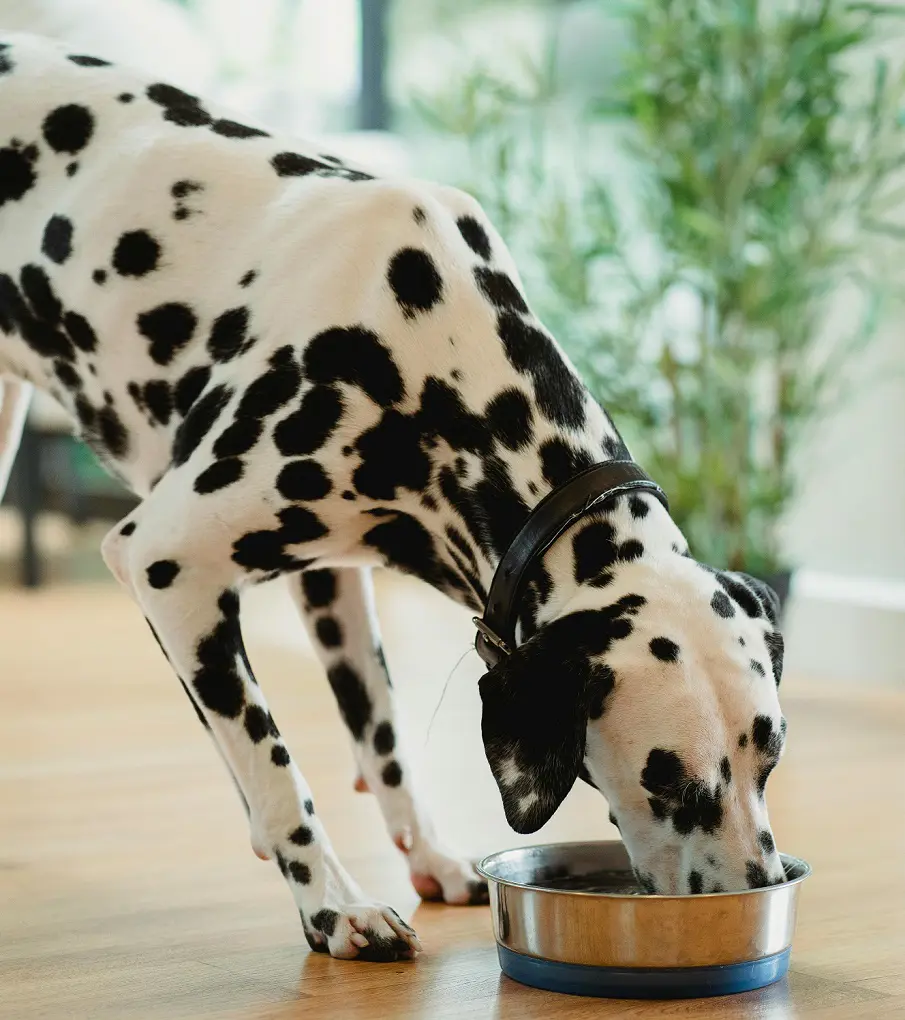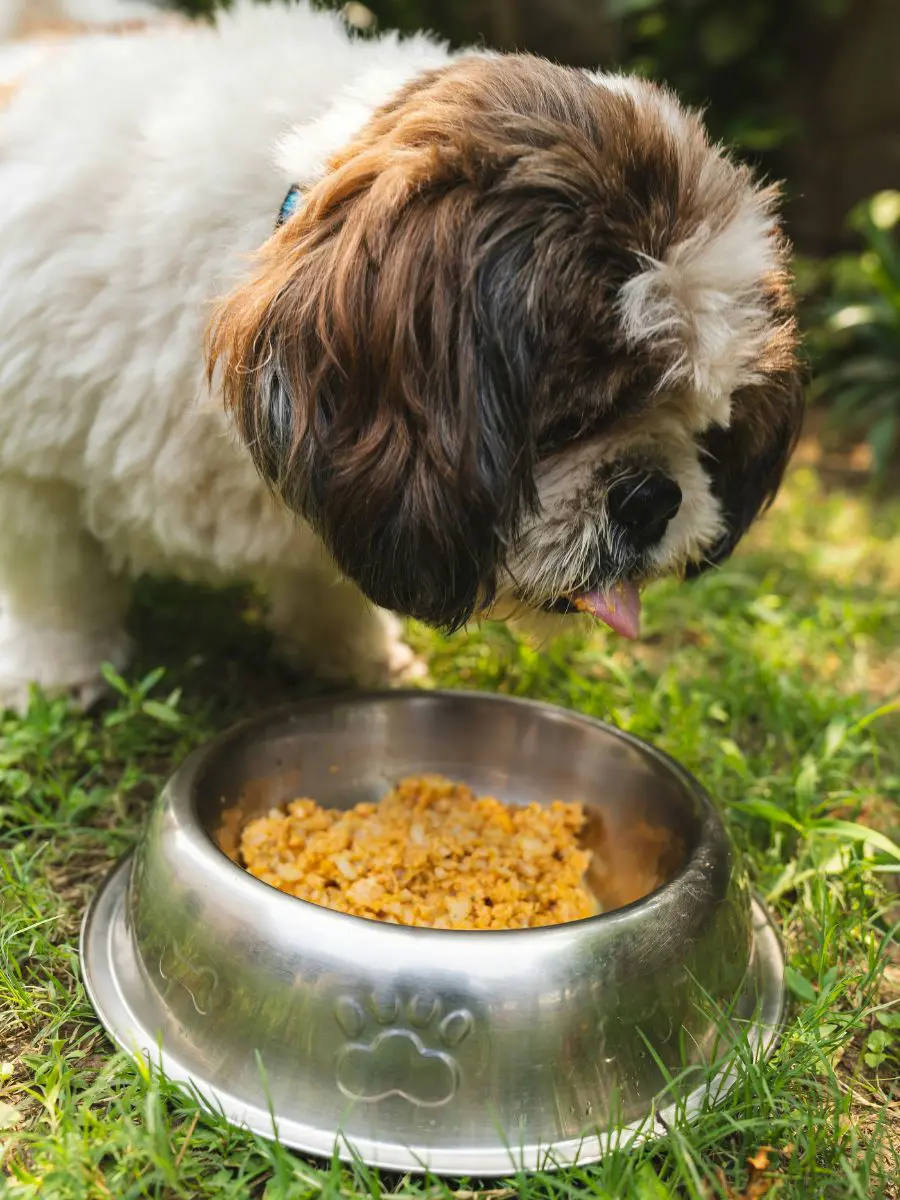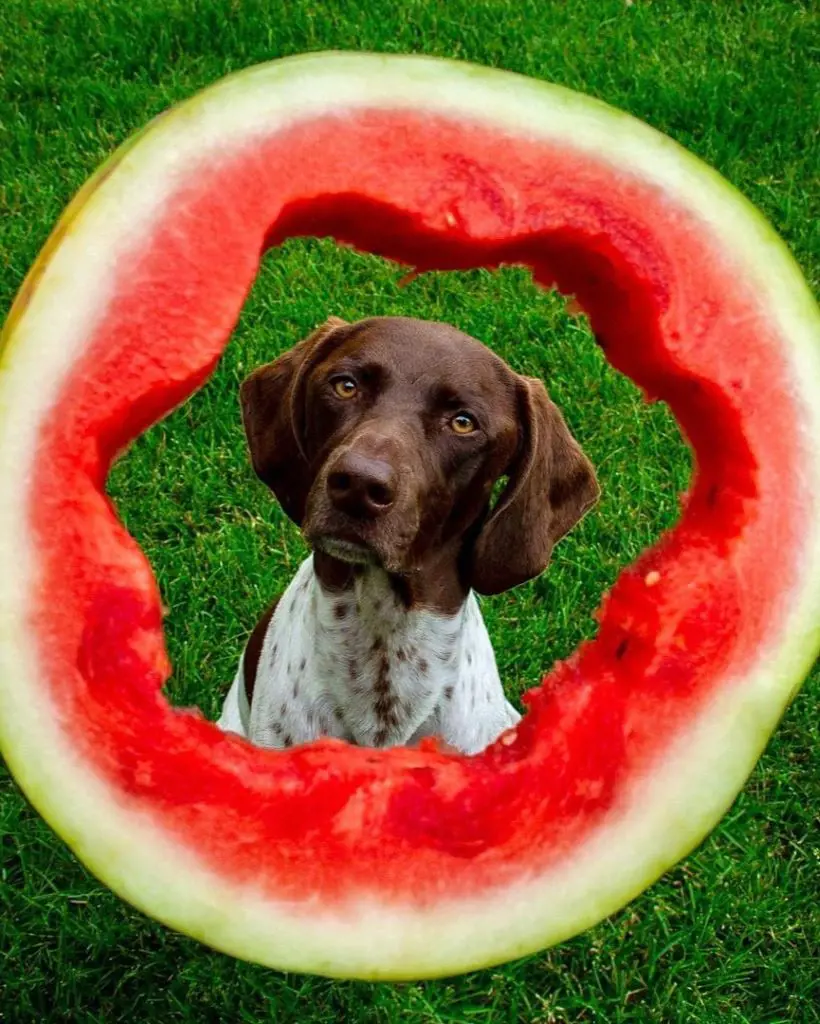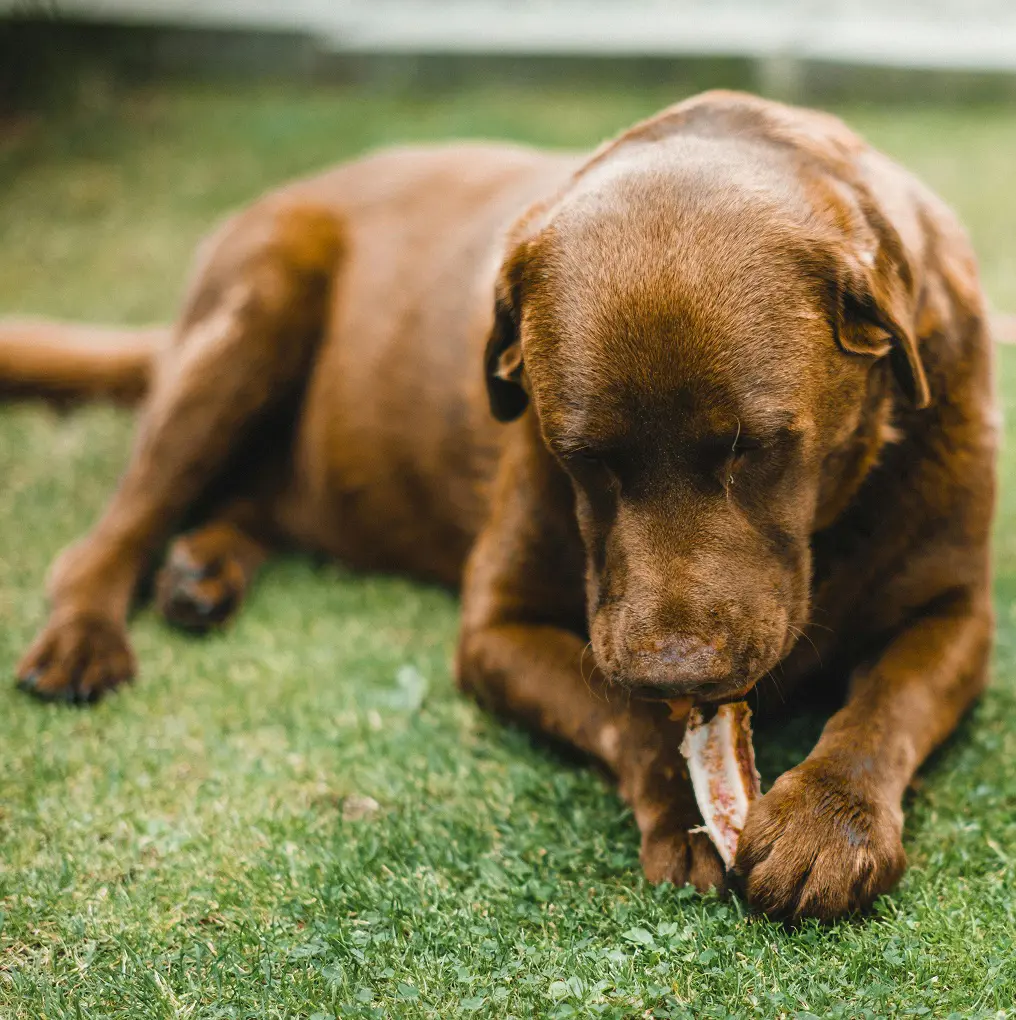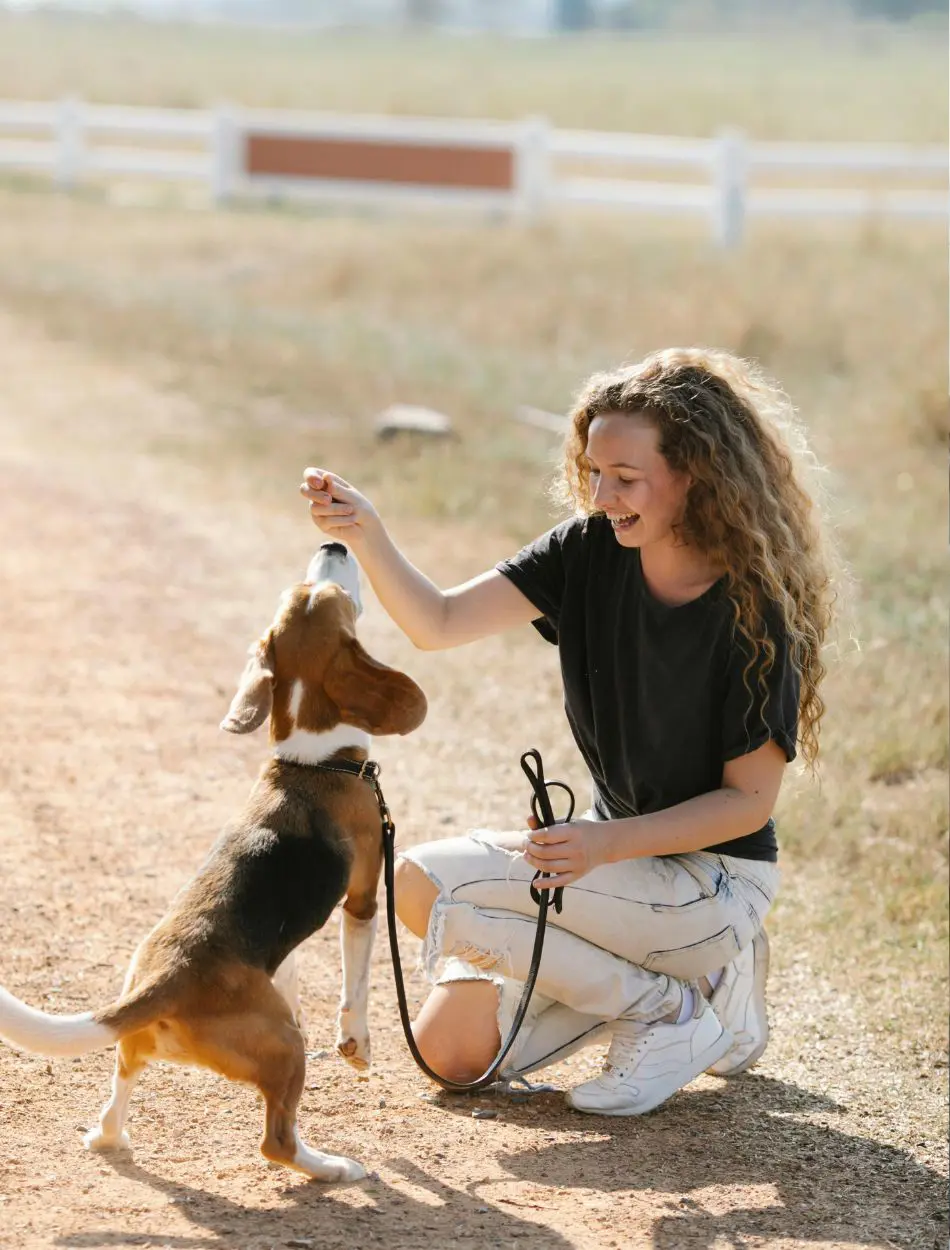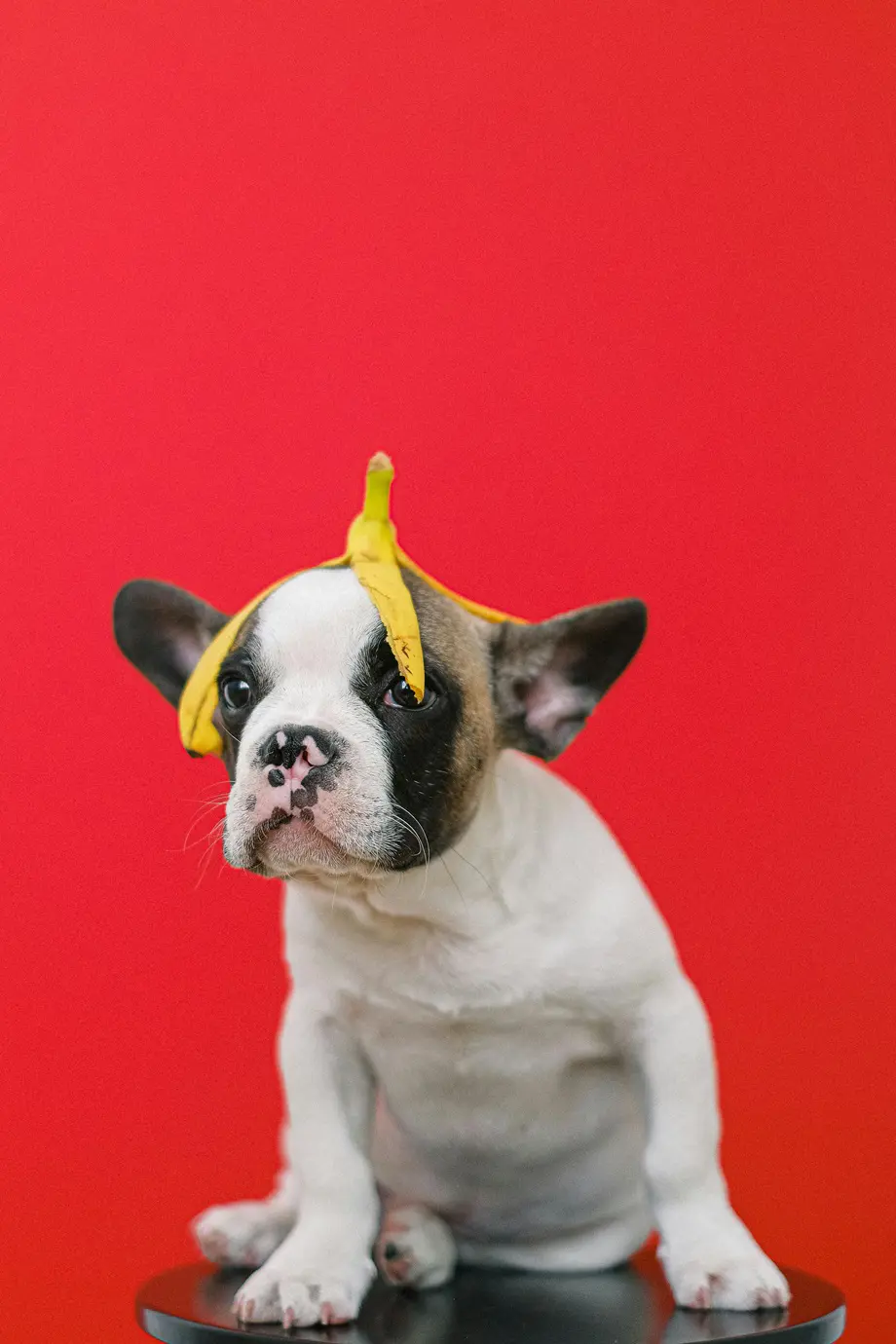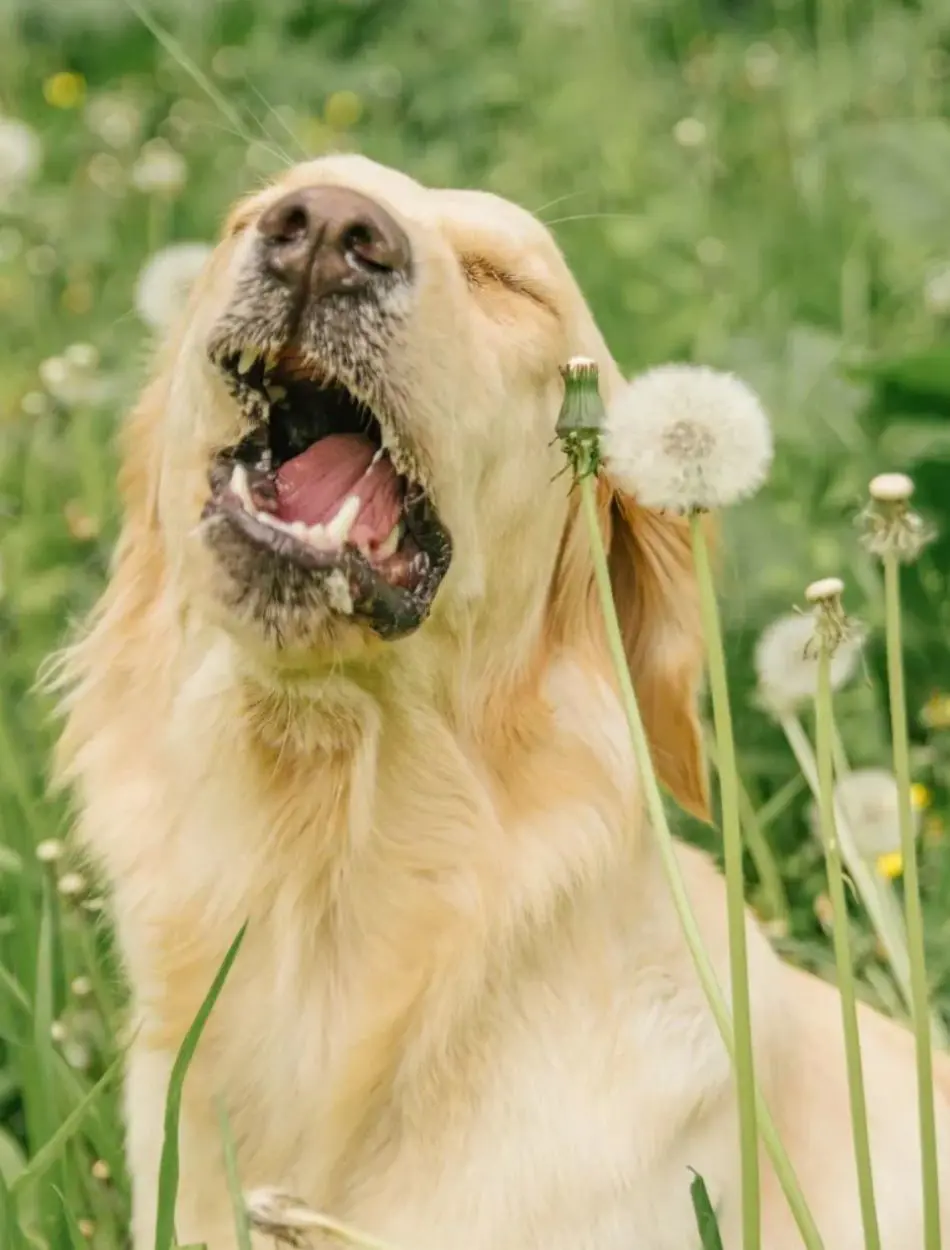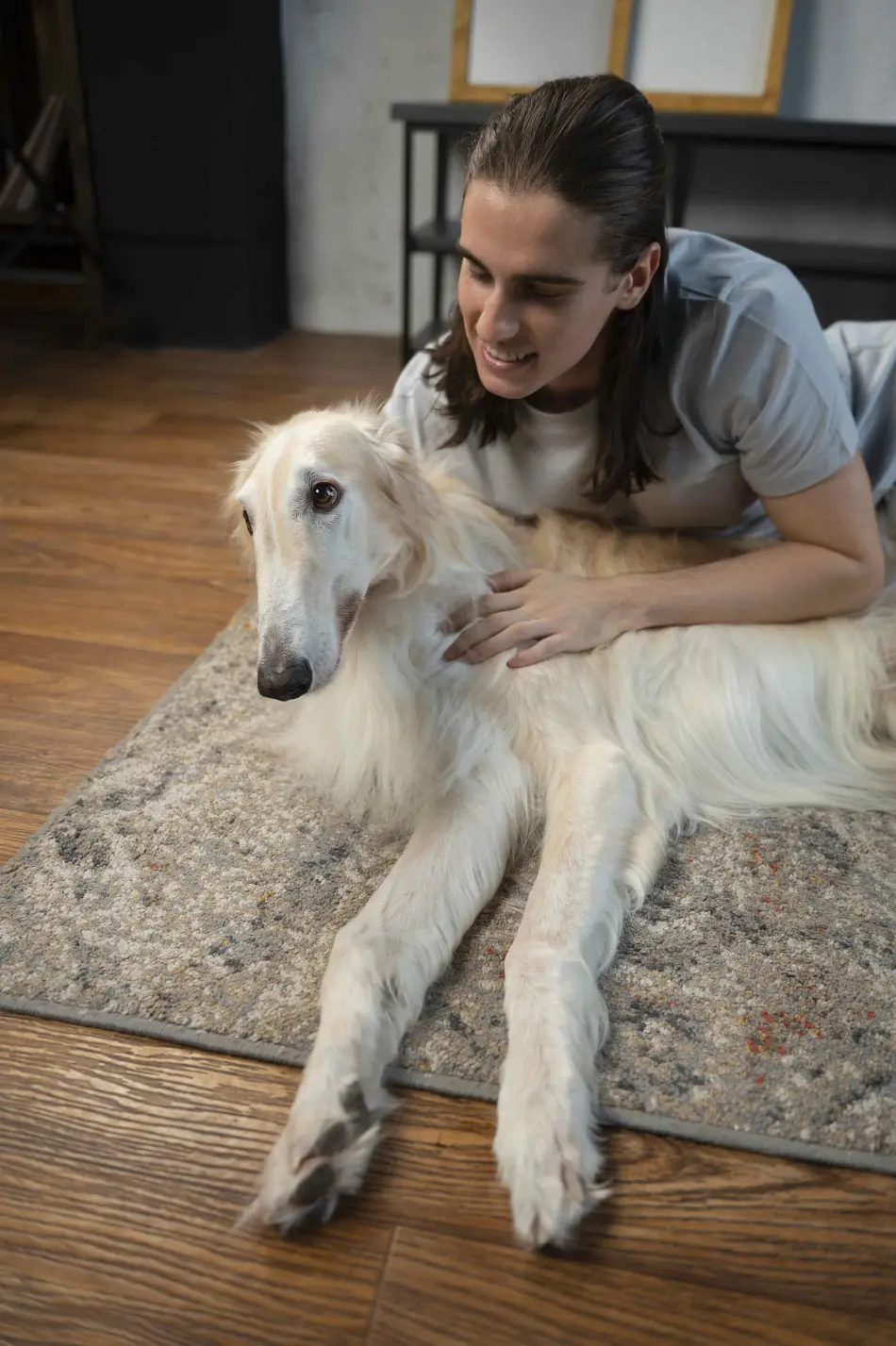Is Peanut Butter Good For Dogs?
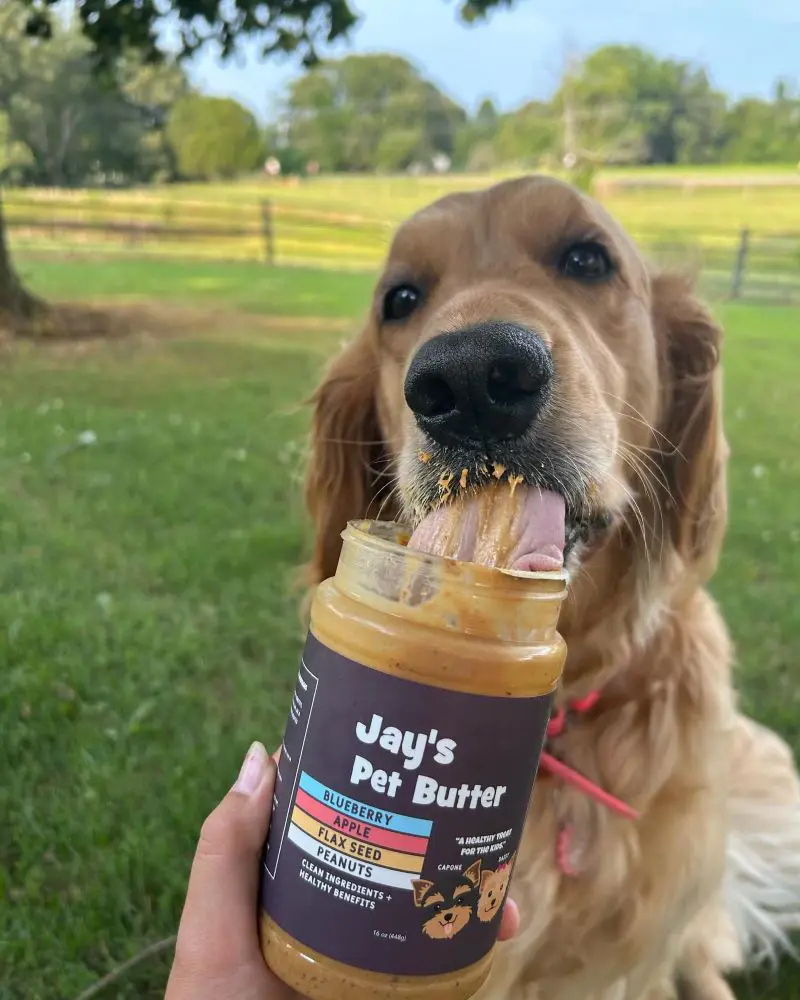
Many peanut butter is indeed safe for most healthy dogs. It's packed with protein and healthy fats, making it nutritious.
Whether you are a new or an experienced pet owner, you may be curious about the reliability of giving peanut butter to your dog. But is it truly beneficial for our furry friends? While it can be enjoyed in moderation, it's essential to understand the potential risks and how to feed it safely.
Peanut Butter As A Dog Treat
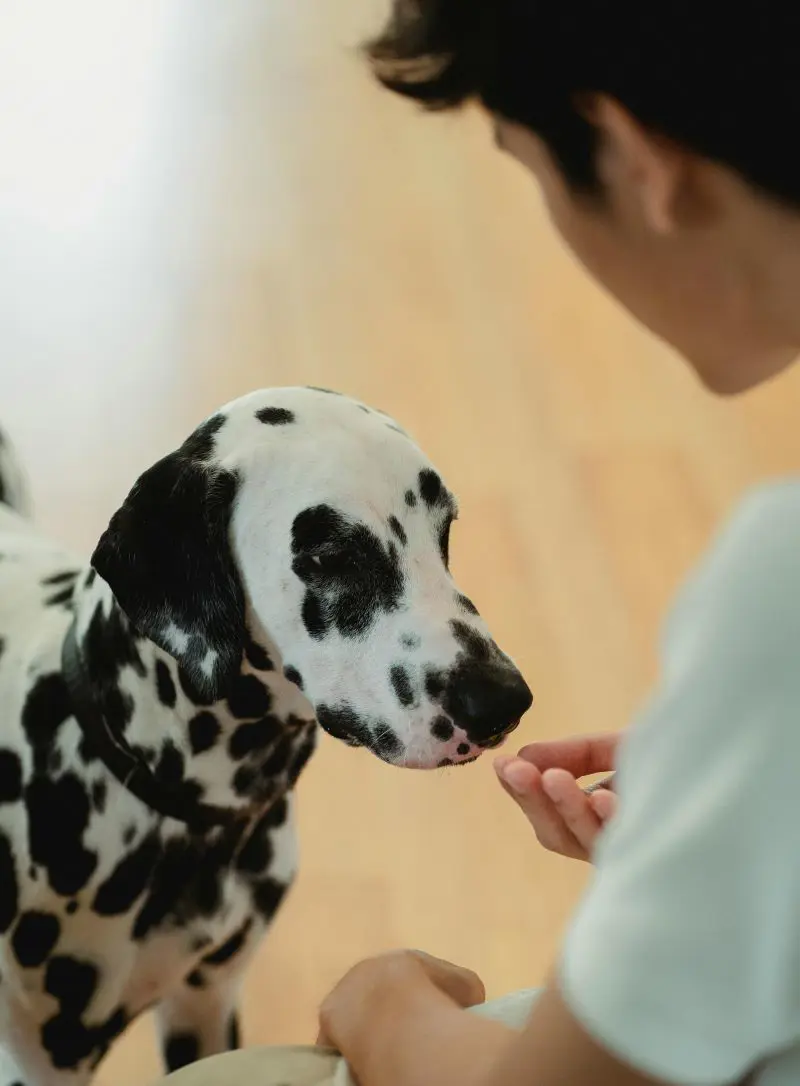
Peanut butter is a popular dog treat. Packed with protein and healthy fats, it can be a rewarding and nutritious snack. Many dogs find its taste tantalizing, making it a great tool for training or a delightful surprise. Dog-specific peanut butter is made with peanuts with no added preservatives, sugars, hydrogenated oils, or artificial additives.
Moreover, it's crucial to select peanut butter without xylitol, an artificial sweetener deadly to dogs. Various brands produce dog-friendly peanut butter with no added ingredients, which can cause harm. However, some manufacturers add healthy ingredients, that benefit dogs and add taste, such as seeds, turmeric, or ginger.
Peanut Butter Benefits
1. Protein Powerhouse
It is a rich source of protein, an essential building block for muscles, tissues, and enzymes in dogs. It helps in muscle repair, growth, and overall tissue development. Protein also plays a crucial role in maintaining a healthy immune system.
2. Healthy Fats for Shiny Coats
Healthy fats in peanut butter, primarily monounsaturated and polyunsaturated fats, contribute immensely to a dog's skin and coat health. These fats help keep the skin hydrated and prevent dryness, giving it a lustrous and soft coat.
3. Essential Vitamins and Minerals
It has essential vitamins and minerals like niacin, Vitamin E, and magnesium. Niacin supports energy metabolism and digestion, while vitamin E is an antioxidant that protects cells from damage. Magnesium is crucial for various bodily functions, including nerve and muscle function.
4. Natural Energy Source
Peanut butter is a natural source of energy thanks to its protein and fat content. It can provide a sustained energy boost for active dogs, especially when used as a reward or treat during training sessions.
How Much Peanut Butter Can A Dog Eat?
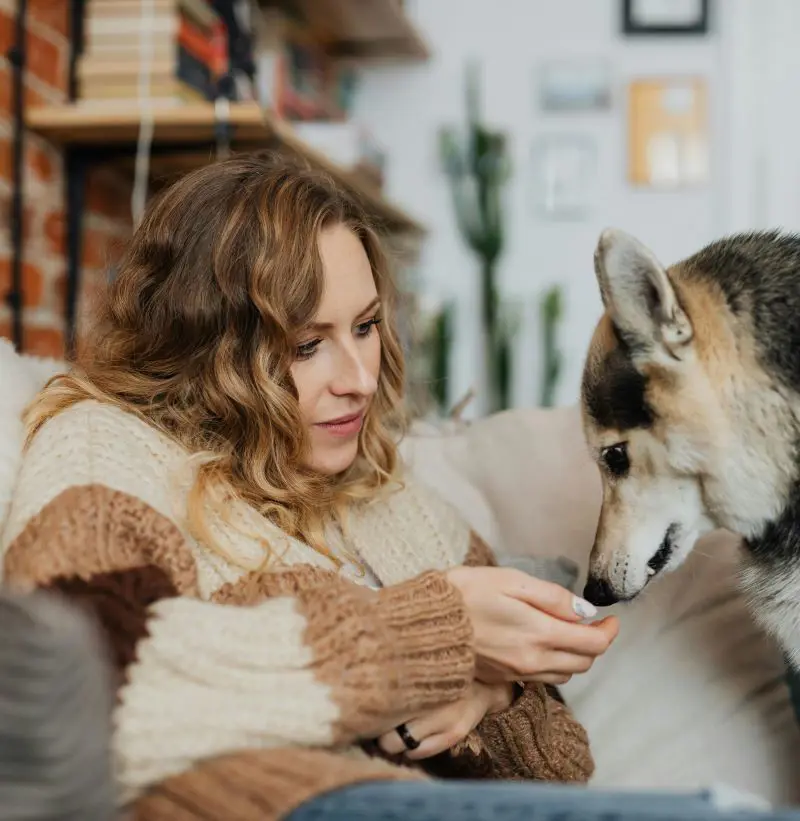
If your dog can eat peanut butter doesn't mean you can feed them as much as they want extravagantly. You should consider the calorie and the fat amount and reduce their limit accordingly.
High In Calories And Fat, So Less Is Good
Peanut butter is an energy-dense food with around 180-200 calories per two tablespoons, most of which comes from fat. The calories in peanut butter can add up quickly when eaten.
Ask your vet how many calories your dog needs daily, including meals and treats. The total calories for dogs per day should be less or equal to 10% of the treats. Only provide as much peanut butter as your dog needs, using a puzzle feeder, or for bath-time cooperation, and not any extra. Also, you can use a small quantity of it for some medications. Limiting peanut butter offerings to ½ teaspoon for a small dog twice daily is reasonable.
Peanut Butter Is Not A Balanced Nutrition Source
The answer is not healthful when it comes to its high-calorie content being helpful for skinny dogs, that need to gain weight. It doesn't provide a balanced source of nutrients as it is mostly fat.
Due to this reason, feeding excessive amounts may do more harm than good for underweight dogs. It lacks essential nutrients like vitamins A and C, calcium, and fiber. Its high calorie and fat content can contribute to weight gain if consumed excessively. Additionally, many commercial brands contain added sugars, sodium, and unhealthy oils, decreasing their nutritional profile.
Risks Of Peanut Butter For Dogs
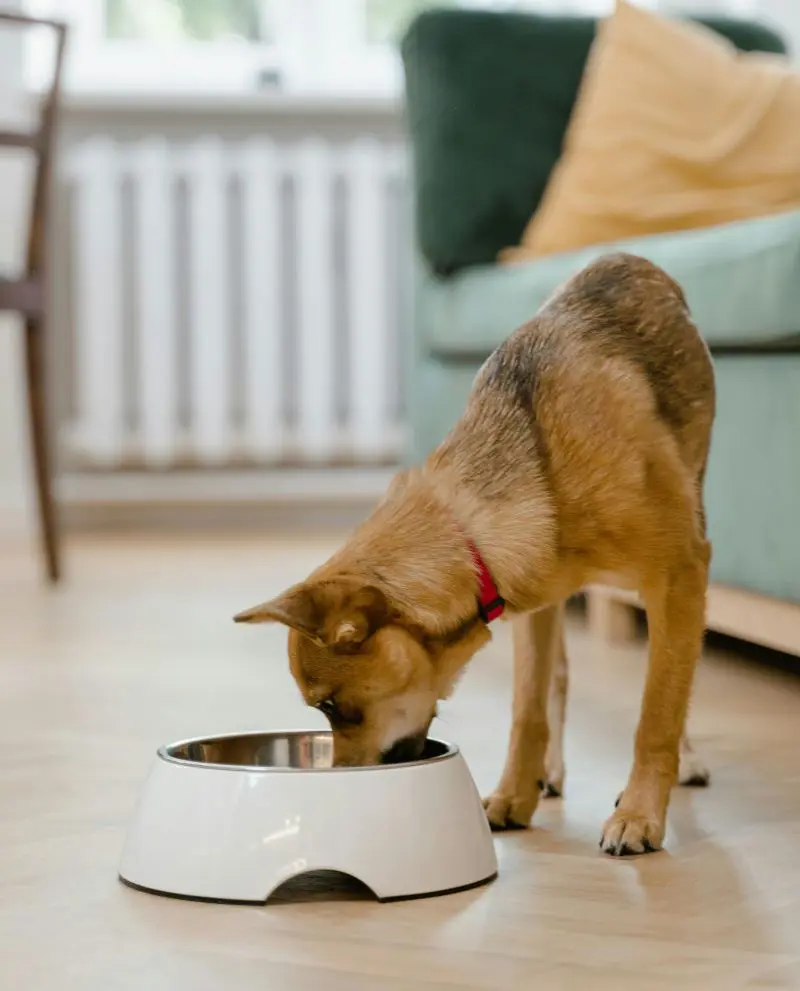
Despite its popularity as a reward or training aid, this creamy spread contains potential risks that every dog owner should be aware of. From the toxic consequences of certain ingredients to the risk of digestive pain, it's crucial to understand the potential hazards associated with feeding peanut butter to dogs.
While peanut butter is the go-to treat for many pet parents, here are a few things to be careful of while feeding your furry friend.
Peanut Butter Containing Xylitol
Xylitol is an artificial sweetener found commonly in gum and sugar-free snacks and is used in some peanut butter brands. Its ingestion sometimes can be life-threatening for dogs because it causes a sudden and dangerous drop in blood sugar levels. Symptoms of xylitol poisoning include lethargy, vomiting, loss of coordination, and seizures.
In addition to blood sugar levels, it also causes severe liver damage. Following its harmful causes, you should make sure to get your favorite brand, which is safer to use by reading the ingredients list on the label, especially for any product labeled "sugar-free."
Dogs Can Be Allergic To Nuts
While sudden, life-threatening allergic reactions typical in humans with nut allergies are rare in dogs, other allergic signs may occur. Its symptoms include itching, hair loss, excessive greasy hair coat, vomiting, diarrhea, and difficulty breathing.
If you ever notice any of these early symptoms after giving your dog peanut butter, stop offering more and call your veterinarian. Also, if a household member is allergic to peanut butter, your dog's mouth and breath may transfer the allergen to them or around your house.
Choking Hazard
While both crunchy and smooth, peanut butter can be enjoyed by dogs, crunchy ones can pose a choking hazard, especially for smaller breeds. The peanut pieces can become lodged in a dog's throat, causing difficulty breathing.
To prevent the choking hazard, you should stick to smooth peanut butter. Even then, it is crucial to supervise your furry friend to ensure they don't inhale any chunks.
Pancreatitis
Peanut butter is high in fat, which can trigger pancreatitis in susceptible dogs. The condition causes inflammation of the pancreas and can be life-threatening. Symptoms of pancreatitis include vomiting, diarrhea, lethargy, and abdominal pain.
If your dog carries a history of pancreatitis or is overweight, it is best to avoid feeding them peanut butter.
Obesity
Excessive peanut butter consumption can contribute to weight gain in dogs. A higher calorie and fat content can contribute to weight gain if fed in excess. It can lead to various health problems, including heart illness, diabetes, and joint issues.
To protect your dog from obesity, peanut butter should be offered as an occasional treat rather than a regular part of the dog's diet.
Use Peanut Butter Safely With Dogs
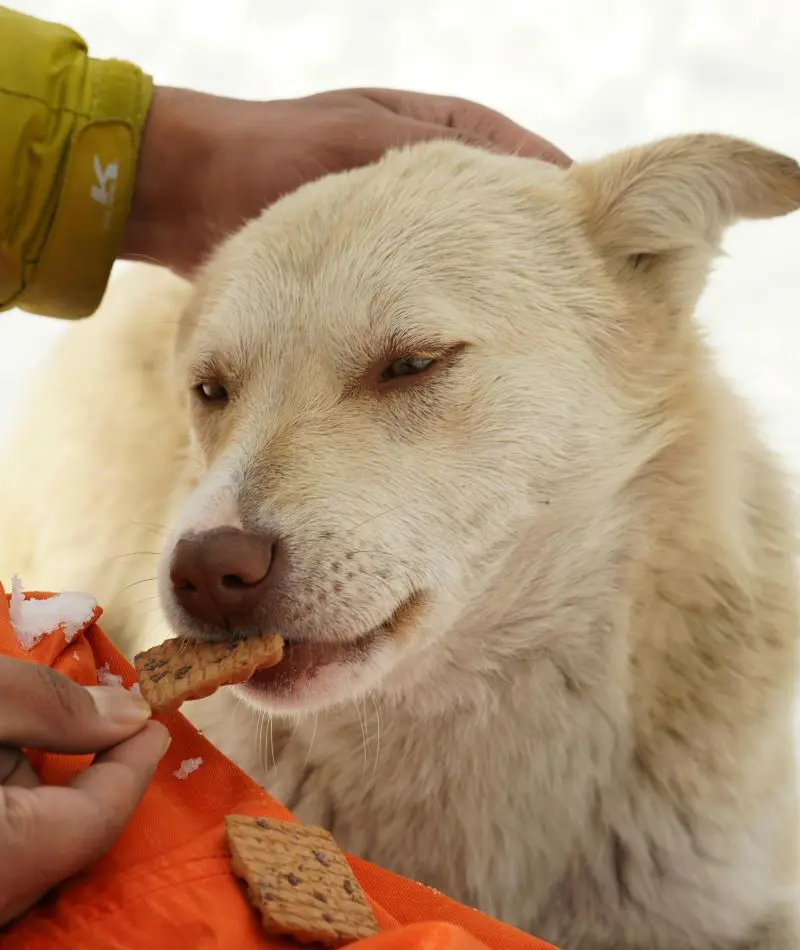
Using peanut butter safely with dogs opens up possibilities for enhancing their experiences across various scenarios. Whether as a tasty treat, a tool for medication administration, or a means to distract and entertain, it can be an enjoyable addition to your dog's routine.
Here are some scenarios where you might use peanut butter, including tips on giving it to your dog safely:
Peanut Butter To Give Medication
Giving medications like pulls and capsules can be stressful to most pet parents as their furry friend won't eat easily. The peanut butter can help make this job easier by cloaking the medication in something delicious. The stickiness and intense flavor disguise the texture and flavor of most pills.
For example, dogs recovering from surgery might benefit from extra calories and protein in peanut butter. However, it’s crucial to consult your vet to determine the appropriate amount and frequency of peanut butter consumption.
Peanut Butter For Bath Time
When training your dog to tolerate bath time, try smearing a small peanut butter on the wall of your tub or shower as a distraction. Encourage your dog to lick the peanut butter while you gently bathe them. As they lick it off, they will be less focused on being washed, making it more fun for both of you.
After the bath, wipe off any residual peanut butter from your dog’s mouth and the bathing area to prevent attracting pests. Opt for natural peanut butter without xylitol or added sugars and salts to ensure it's safe for your dog to consume. Reward calm behavior and use soothing tones to reassure your dog throughout the bath.
Peanut Butter For Playtime
If you have a smart, high-energy dog that is highly food-motivated, consider using peanut butter with a fun puzzle feeder toy.
You can fill a large Kong with kibble, seal the hole with peanut butter, and keep it freezing for 2-3 hours. Offer this puzzle on an easy-to-clean floor and challenge your dog to figure out how to spill the kibble out. It is a great way to keep your dog entertained when you are home and want to keep an eye on them. Keep his or her general health and waistline, when offering peanut butter as a treat.
What Kind Of Peanut Butter Can Dogs Eat?
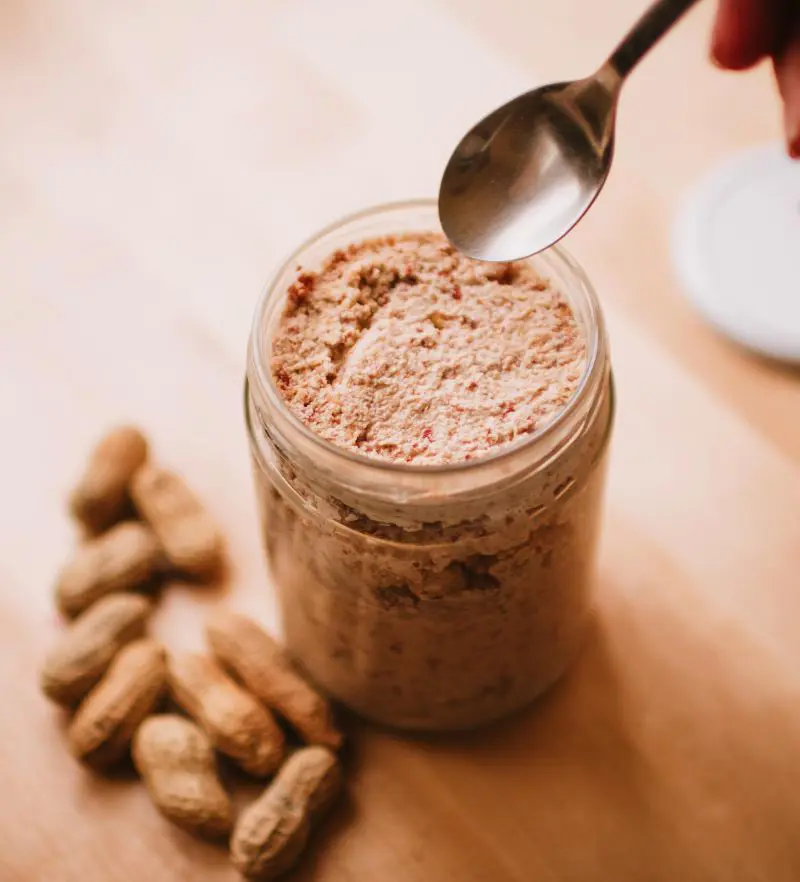
If your dog enjoys peanut butter in moderation, the next thing to feed them is the same type, we pet parents spread on bread. You should check the label first while purchasing it to ensure there are no added ingredients, especially sugar-free ones so that you can feed your furry pet.
The main ingredient that should keep you at risk is xylitol. This synthetic sugar is found in some sugar-free peanut butter and is toxic to dogs. Avoid feeding peanut butter with this ingredient as it can lead to low blood sugar, seizures, and organ failure in some cases.
Can Dogs Eat Crunchy Peanut Butter?
Crunchy peanut butter is certainly delicious, but the main question is whether it is safe for your furry friend. The answer is yes, they are just as secure as creamy as long as you follow all the safety precautions avoiding artificial ingredients like xylitol and extra ingredients like chocolate.
The crunchy types hide pills a little better than the creamy ones since dogs have a hard time spitting a hidden pill out of the crunchy peanut butter. Also, the peanuts in crunchy peanut butter shouldn't pose a choking hazard. However, for small dogs, you might go for the creamy type instead, just to be on the safer side.
Choosing the Right Peanut Butter
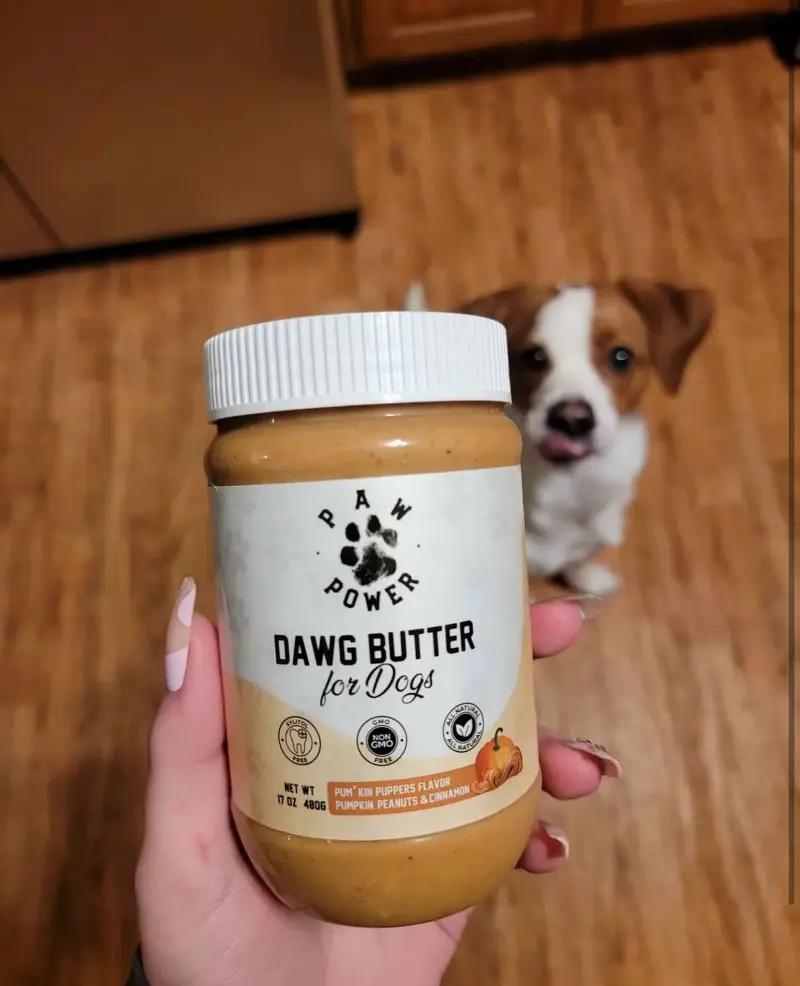
Selecting the right peanut butter for your furry companion is essential. Choose natural peanut butter with minimal ingredients. and primarily peanuts, with perhaps a touch of salt. Avoid products loaded with added sugars, artificial sweeteners, or hydrogenated oils.
These ingredients offer no nutritional value and can be harmful. Xylitol, a common artificial sweetener, is particularly toxic to dogs. Always check the label carefully to ensure it's absent.
Best Peanut Butter Brands for Dogs
Searching the various peanut butter brands can be difficult. To simplify your search, look for brands explicitly marketed as dog-friendly. These options typically follow strict quality standards and avoid harmful additives.
Some popular choices include natural peanut butter from renowned companies known for their human-grade ingredients. Consider factors like ingredient simplicity, overall quality, and your dog's preferences when choosing the right ones.
Homemade Peanut Butter for Dogs
If you want complete control over your dog's peanut butter consumption, prepare it at home. This allows you to add the ingredients to your pet's specific needs and avoid any potential allergens or unwanted additives.
To prepare, you'll need unsalted peanuts and a food processor. Roast the peanuts for improved flavor, then blend until you achieve your desired thickness. For added richness, you can incorporate a small amount of coconut oil. While homemade peanut butter offers control and freshness, it's important to store it properly to maintain its quality.
Safely Feeding Tips
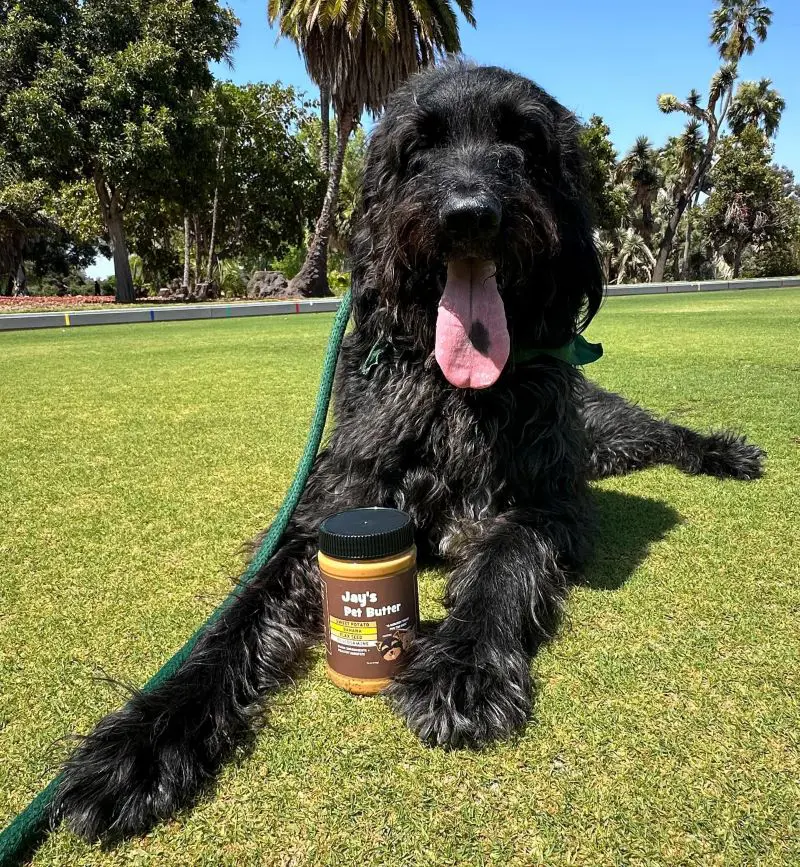
Peanut butter can be a delightful treat for dogs when administered responsibly. To ensure your furry friend enjoys this tasty snack without any risks, follow these guidelines:
Moderation is Key
Peanut butter is high in calories and fat. Excessive feeding can lead to weight gain and digestive issues. Offer it as an occasional treat, not a regular part of their diet. Consult your vet to choose the appropriate serving size, based on your dog's health.
Supervise Your Dog
Always monitor your dog while they are eating peanut butter. This helps prevent choking and allows you to intervene if any issues arise. Be cautious when feeding peanut butter from a spoon or jar to avoid accidental ingestions.
Consider Your Dog's Health
If your dog exhibits any signs of an allergic reaction, such as itching, vomiting, or difficulty breathing, discontinue peanut butter consumption. Also, dogs with pancreatitis should avoid peanut butter due to its high-fat content.
Creative Feeding
To make peanut butter more enjoyable, consider freezing it into lickable mats or hiding it inside puzzle toys. This can provide a mental and physical boost for your dog.
Recent posts
Dog Foods
Why Bone Broth For Dogs Are Superfood
Bone broth is regarded as a superfood because of all of its health advantages. Packed with vital nutrients including minerals, collagen, and amino acids, it helps with digestion, maintains joint health, and encourages healthy skin and fur. Collagen i...
Homemade Dog Food Recipes That Are Easy And Nutritious
Creating homemade dog food is not just a mundane cooking ritual but an exciting culinary journey that adds a dash of love to your furry friend's bowl. Say goodbye to store-bought blandness and dive into the world of DIY dog food recipes that are deli...
20 Fruits That Will Make Your Dog Wag Their Tail
Many dogs can eat fruits in moderation, and in fact, fruits can be a healthy and fun treat for them. With its naturally sweet flavors, fruits make for a tasty alternative to traditional treats. So, incorporating a variety of fruits into a dog's diet ...
Can Dogs Eat Bones Safely?
Dogs can eat bones, but it must be done with caution. Raw bones, such as chicken, turkey, lamb, or beef, can be safe and beneficial, providing minerals and helping to clean teeth. However, cooked bones should be avoided as they can splinter, causing ...
Can Dogs Eat Broccoli?
Dogs can eat broccoli in moderation, making it a potential addition to their diet. This vegetable can be served to dogs either cooked or raw, depending on their preference. Incorporating a variety of vegetables into a dog's diet can provide them with...
Can Dogs Eat Bananas
Dogs and their dietary habits are a topic of interest for many pet owners, who often wonder about the suitability of various human foods for their canine companions. Banana is the most loved fruit by everyone and they will stun you as quite healthy a...
